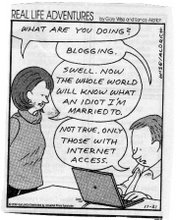By Jobs, I Think He's Got It!!!

We're talking about a cool pad, man. Can you dig it? Like ice cream, man!
It's only a marginal revolution:
My theory is that Apple wants to capture a chunk of the revenue in this nation's enormous textbook market -- high school, college, whatever. Why lug all those books around? The superior Apple graphics, colors, and fonts will support all of the textbook features which Kindle botches and destroys. Apple takes a chunk of the market revenue, of course, plus they sell the iPads and some AT&T contracts. There are lots of schoolkids in the world.Driver's note: How many pads did you think of before you thought of 'bachelor pad'?
As Kottke says, it is a device you use sitting down. And it fails to solve the "sunlight on your reading screen" problem/ Those both point to somewhat sedentary uses.. And it doesn't seem to have a camera.
In the longer run the iPad will compete with your university, or in some ways enhance your university. It will offer homework services and instructional videos and courses, none of which can work well on the current iPhone or Kindle. The device also seems to allow for collaborative use.
Can you imagine one attached to every hospital bed or in the hands of every doctor and nurse?
It will take some business away from Kindle but that will not be the major impact. The commercial book trade just isn't that big in terms of revenue and arguably that sector will shrink with digitalization, as recorded music has been doing.
The story here is one of new markets, not cannibalization or even competition.
Most of the commentary I've read hasn't been very imaginative about what the content might be.
Addendum: Chris F. Masse, who sometimes reads my mind, sent me this article (before this post was up):
“The book will never die. But the textbook probably will,” says Inkling CEO Matt MacInnis. Inkling is working directly with textbook publishers. First, they’ll port their existing tomes onto Apple’s iPad as interactive, socialized objects. Then, they’ll create all-new learning modules — interactive, social, and mobile — that leave ink-on-paper textbooks in the dust.










No comments:
Post a Comment